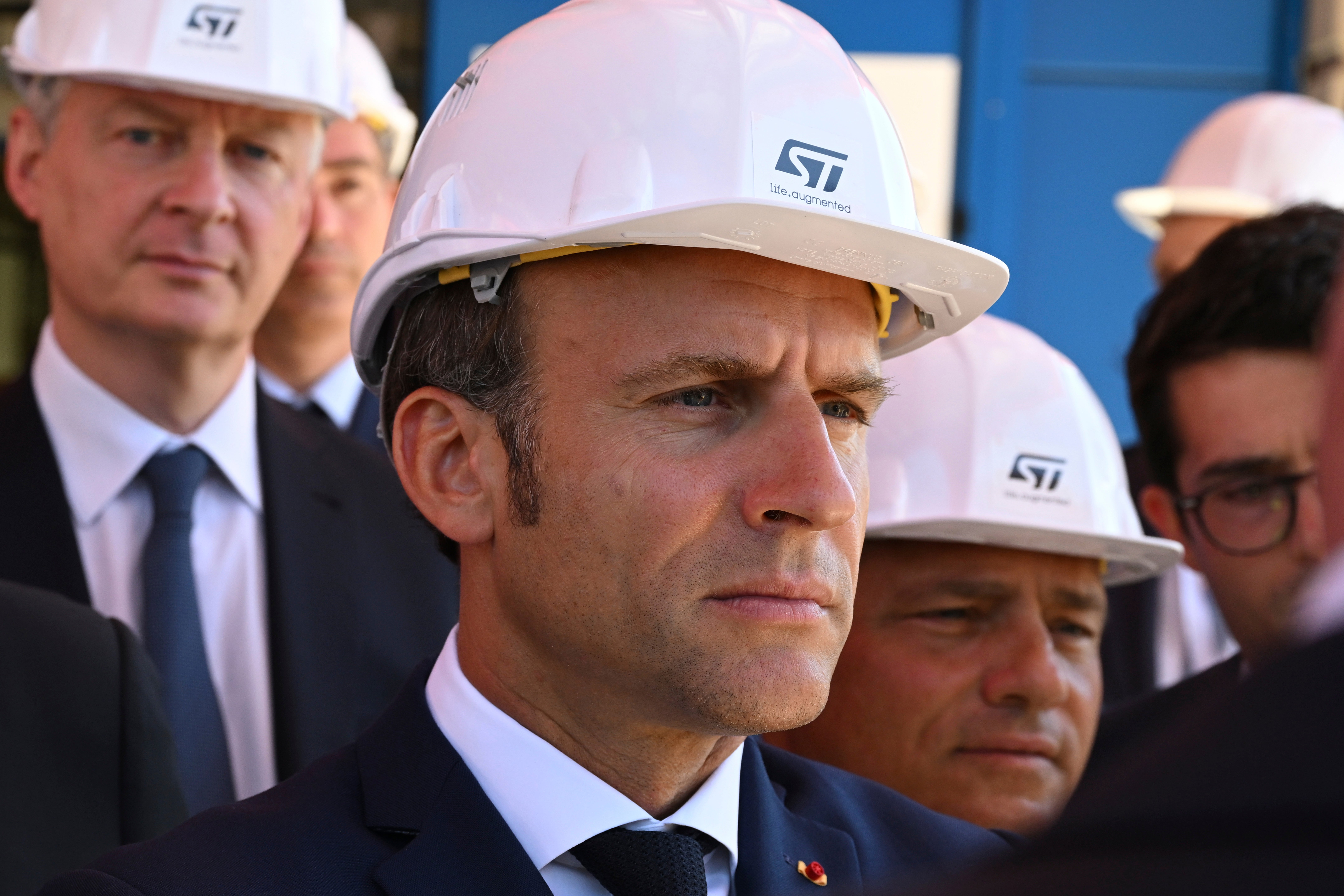France forecasts weak growth next year amid energy crisis
France is forecasting growth to slow down substantially next year in the EU’s second-biggest economy

Your support helps us to tell the story
From reproductive rights to climate change to Big Tech, The Independent is on the ground when the story is developing. Whether it's investigating the financials of Elon Musk's pro-Trump PAC or producing our latest documentary, 'The A Word', which shines a light on the American women fighting for reproductive rights, we know how important it is to parse out the facts from the messaging.
At such a critical moment in US history, we need reporters on the ground. Your donation allows us to keep sending journalists to speak to both sides of the story.
The Independent is trusted by Americans across the entire political spectrum. And unlike many other quality news outlets, we choose not to lock Americans out of our reporting and analysis with paywalls. We believe quality journalism should be available to everyone, paid for by those who can afford it.
Your support makes all the difference.France forecasts growth to slow down substantially next year in the EU's second-biggest economy, amid fears of a recession in neighboring Germany as the economic situation in Europe is slammed by the impact of Russia’s war in Ukraine.
France’s budget, presented Monday in a Cabinet meeting, is based on an predicted growth of 1% next year — down from an estimated 2.7% this year.
As the country faces soaring energy and food prices, Finance Minister Bruno Le Maire said inflation in France is expected to reach 6% in the coming months and 4% later next year.
Also on Monday, the Paris-based Organization for Economic Cooperation and Development (OECD) said it anticipates almost flat growth next year in the 19-nation euro zone largely due to a recession in Germany, where the gross domestic product is expected to contract by 0.7%.
The OECD's predictions put France's growth at 0.6% next year.
The French government issued this month a 16 billion-euro ($16 billion) plan to cap gas and electricity price rises in France at 15% next year.
“I think that what makes France different from a lot of European countries is that the purchasing power in 2023 will continue to increase, especially thanks to the cap on energy prices,” Le Maire told a news conference.
The cost of the measure is partially paid for by compulsory financial contributions from energy producers, he said. Those that benefit from soaring profits will help support French households and companies impacted by the crisis, he said.
Earlier this month, the European Union's executive body unveiled a plan to cap the revenue of electricity producers that are making extraordinary profits because of the effects of Russia’s war in Ukraine, saying the proposal could raise $140 billion to help people hit by spiraling energy prices.
France has not introduced a windfall tax on energy firms. The leftist opposition to the French government is pushing for a referendum and proposed a bill last week to create such a tax.
Last week, French lawmakers questioned companies benefiting from energy price hikes such as French giants TotalEnergies and Engie.
TotalEnergies CEO Patrick Pouyanné said the company will pay $30 billion in taxes worldwide this year.
Yet in France, the group’s main activities, related to refinery and selling fuel, were losing money in previous years, he said. He added that the price cap of gas and electricity in France prevents the company from making windfall profits in France this year.
___
Follow all stories about the impact of the war in Ukraine at https://apnews.com/hub/russia-ukraine.